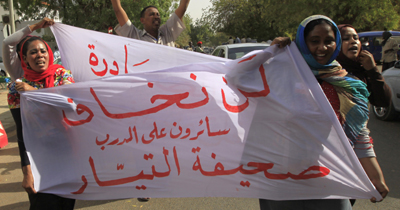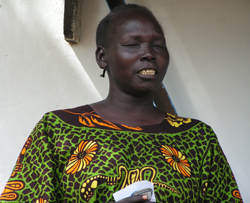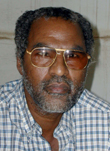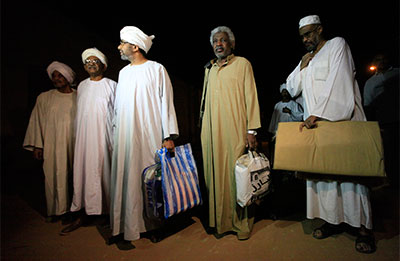Remembering Camille Lepage
“Not sure I can talk about my ‘career’ just yet–I’m still just getting started!” freelance photographer Camille Lepage told the photography site Petapixel in October 2013.Less than a year later, Lepage’s body was found in a car in the Central African Republic, according to news reports citing the French government. She had been traveling with fighters of…
Video: Journalists in exile
Four East African journalists who were forced to flee their countries tell about their experiences, difficulties, and hopes for the future. (3:43)Read CPJ’s report, “Journalists in exile: Crisis in East Africa,” for more information about journalists forced to go into exile.

For exiled Eritreans in Sudan, fear greater than most
With the launch of CPJ’s most recent exile report, I will have worked exactly three years for our Journalist Assistance program. More than 500 cases later, I have helped journalists who have gone into hiding or exile to escape threats; those in need of medicine and other support while in prison, and journalists injured after…
Defining role of the press in genocide prevention
Talking about genocide prevention in the shadow of the Auschwitz-Birkenau extermination camps brings an intense and unique gravity to the discussions. The academic presentations cannot extract themselves from the looming presence of the barbed wires and grim towers surrounding the Nazis’ most infamous death factory.
Sudan’s press under siege
Press freedom in Sudan is rapidly deteriorating, with confiscation of newspapers by the security agency becoming a norm. The scope of violations committed against publications and journalists by the Sudanese National Intelligence and Security Services (NISS) is widening by the day.

In Sudan, a new strategy to censor the press
Sudanese authorities have a long history of closing newspapers and silencing journalists. But the government security agents who carry out official censorship have launched a new strategy this year that focuses on economic impoverishment–leaving newspapers more vulnerable than ever.

Remembering South Sudan’s pioneer female reporter
When The Juba Post’s star reporter, Apollonia Mathia, told me that so-called “tong tong” rebels had attacked again near Gumba, in southern Sudan, I looked at her warily. “Let me get the camera I’ll check it out,” she said. Apollonia planned to hop on our rickety motorbike to cover a story about the infamous Ugandan…
Free expression in the Middle East & North Africa
On Thursday, I participated in a panel discussion about media in the Middle East at the United Nations to commemorate World Press Freedom Day. Other panellists included Alya Al-Thani, counsellor, Permanent Mission of Qatar to the United Nations; Abderrahim Foukara, chief of the Washington Bureau of Al-Jazeera; Ebtihal Mubarak, journalist for Saudi Arabia’s English-language daily…

Executions in editor’s murder trigger doubts, outrage
Sudan’s execution this week of nine men found guilty of involvement in the 2006 assassination of editor Mohammed Taha Mohammed Ahmed, left, is seen by many there as an outrageous miscarriage of justice, spurred by a thirst on the part of President Omar al-Bashir’s regime for settling scores with the rebellious region of Darfur.
